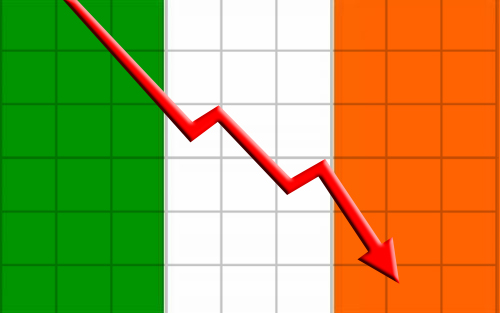
Over recent months Ireland has been elevated to ‘model pupil’ status by the International Monetary Fund (IMF) and European Union (EU) for its obedience in implementing devastating austerity measures. In December 2013 Ireland became the first Eurozone country to formally exit a bailout programme. In 2008 it became the first country in Europe to enter recession and in November 2010 it accepted a joint EU/IMF bank bailout package worth over €85bn (£72bn) in order to stabilise the unravelling economy. Part of the deal forced the Dublin government to introduce more than 200 austerity programmes, implementing structural reforms such as a property tax as well as severe slashing of public spending. The Fine Gael/Labour coalition elected in 2011 has claimed to be aiming at regaining ‘Ireland’s economic sovereignty’. Despite the optimistic headlines, the fundamental causes of the crisis remain. The Irish people continue to face the devastating social consequences.
During the boom years of the Celtic Tiger, 1995-2008, unprecedented media coverage and prestige were given over to advocates of the most rampant forms of capitalism, based on property speculation. Between 1994 and 2006 the average second hand house price in Dublin increased from €82,772 to €512,461 a rise of 519%. 87% of Irish households own their own homes compared to an EU average of 61%. It was this housing boom which led to the financial crisis which bankrupted the Irish state, the subsequent bailout and with it the insolvency of generations of Irish people.
Irish leader Enda Kenny recently told parliament ‘We will exit the bailout in a strong position; we still have a long way to travel but clearly are now moving in the right direction.’ The apparent grounds for optimism are a modest increase in GDP figures; with 33,800 jobs created, and Irish house prices once again on the rise. However talk of a recovery is both short sighted and at odds with reality.
Latest figures show that since the crisis began in 2008, 397,500 people have emigrated from Ireland. One Irish person emigrates every six minutes – the highest net emigration level in Europe. In the year to April 2013, 89,000 left the country, a 2.2% increase on the previous year. While in the early period migration among 15-24 year olds soared, recent figures show an increase of 25-44 year olds along with those under the age of 14, suggesting families are leaving at an increased rate. Migration has served to partly offset unemployment figures which have dropped from 14.8% in early 2013 to 13.7%. Almost one in three 15-24 year olds are unemployed. According to the Union of Students in Ireland 51% of Irish students expect to have to emigrate once they complete their degrees.
Between 2008 and 2013, local community and development programmes were cut by 42.3%. Initiatives against drugs saw cuts of 32.5% from €44.3m to €29.9m. Social projects for disadvantaged young people were cut by 20.6% while traveller accommodation and education funding was slashed by 85%. The social consequences of these capitalist imposed solutions to the crisis are devastating, increased unemployment and poverty, more drug addiction and alienation. Ireland has the fourth highest suicide rate among young people in Europe.
During the exorbitant boom years the media, quoting so-called ‘financial experts’ and the greedy political class, refused to contemplate an end to the housing bubble. Today, the same media repeat ad nauseam that the crisis in Ireland is all but over and argue that Ireland is an example in crisis management to the world. What credibility can be placed upon the opinions of those who led Ireland to the biggest crisis since the inception of the state? Now, they look on with indifference to the suffering of the Irish people whilst mass unemployment, forced migration and social devastation become the primary features of Irish society.
Paul Mallon




